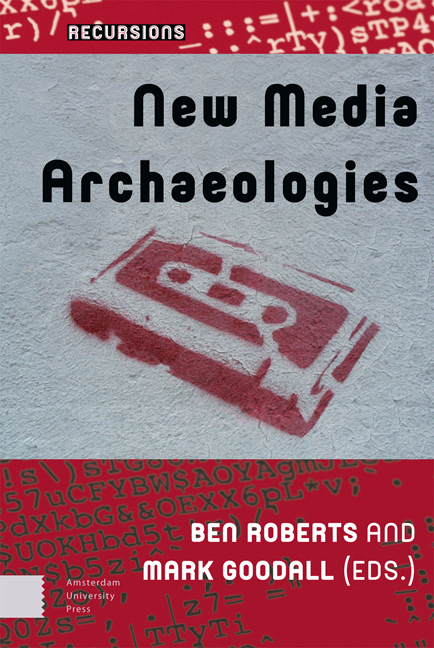3 - The Ghosts of Media Archaeology
Published online by Cambridge University Press: 21 November 2020
Summary
Abstract
This chapter focuses on the experimental nature of media archaeology and the avant-garde. The chapter discusses some of the potential applications of avant-garde methodology to objects and material relating to the field of media archaeology. It extends the calls already made by media archaeology theorists (Cf. Fickers and van den Oever) into the domain of experimental techniques and practices and offers examples of where and how radical texts and methods may be applied to curatorial work and academic research. The text acknowledges the potential for current thinking on media archaeology to affect a wide range of creative endeavours including museum practice, artistic practice and research.
Keywords: experimental media, avant-garde, artistic practice, heuretics
‘A spectre is always a revenant. One cannot control its comings and goings
because it begins by coming back ’ (Derrida, 1994, p. 11)‘The writing of history is as personal an act as the writing of fiction’
(Susman, 2003, p. xiii)This chapter is concerned with the experimental nature of media archaeology, an aspect of the discipline that is receiving a growing amount of attention. Since its inception, the study of media archaeology has encouraged a diversity of approaches, practices, and voices. Erik Huhtamo and Jussi Parikka describe this variety of perspectives and range of debates as ‘polylogues’ (Huhtamo and Parikka, p. 2). Gilles Deleuze and Felix Guattari, seen as founders of media archaeological thinking, talked about the practice of ‘nomadology’– the adoption of multiple narratives that are, in effect, the ‘opposite of a history’ (Deleuze and Guattari, p. 24). Meanwhile, Siegfried Zielinski petitions for discovering ‘fractures or turning points in historical master plans’ (Zielinski, p. 7). His ‘variantology’ project (2007) is built on the urge to ‘be different, to deviate, to change, to modify’ (Huhtamo and Parikka, p. 12).
In 2013, Fickers and Van den Oever published an essay entitled ‘Experimental Media Archaeology: A Plea for New Directions’ (2013). The authors noted and praised the achievements made by the previous methodologies based on discourse, but at the same time stressed that ‘the materiality of media technologies and the practices of use need more attention’ (Fickers and Van den Oever, 2013).
- Type
- Chapter
- Information
- New Media Archaeologies , pp. 69 - 82Publisher: Amsterdam University PressPrint publication year: 2019

